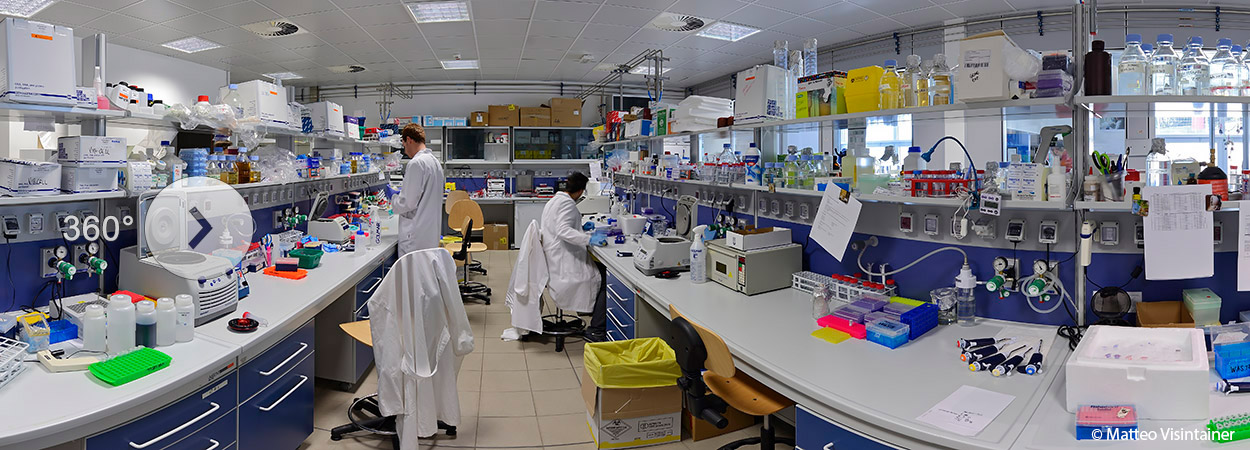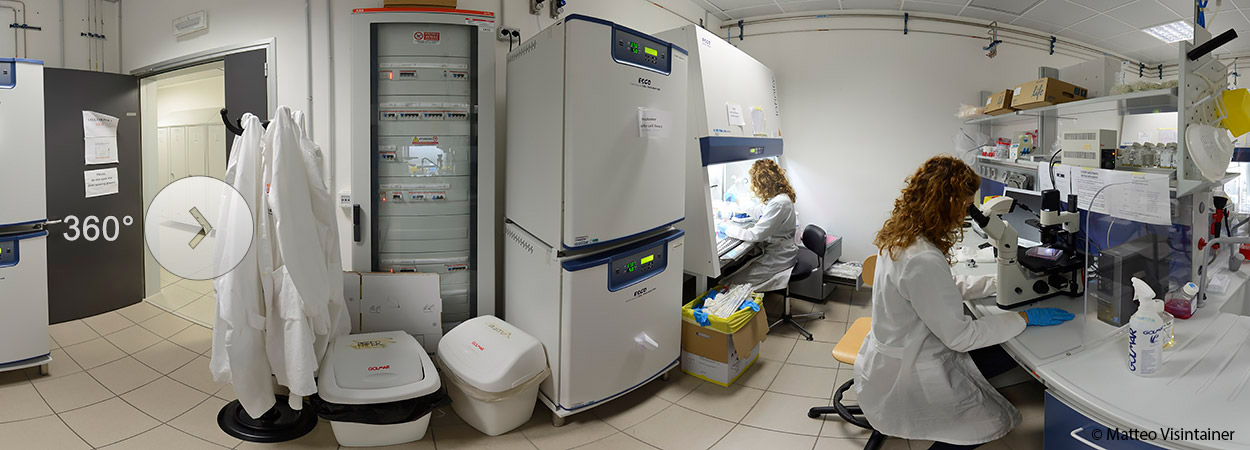The Centre for Integrative Biology at the University of Trento (http://web.unitn.it/en/cibio) pursues the task of creating a suitable environment for merging classical cellular and molecular biology approaches with the new powerful tools of systems and synthetic biology, and with the contribution of chemistry, physics, informatics, mathematics, and engineering in an integrative view of basic biological processes and of their derangement in disease. Research at CIBIO covers a number of topics all emphasizing experimental analysis at various levels of biological organization, and are roughly focused on four major research programs: Cancer Biology & Genomics, Cell & Molecular Biology, Microbiology & Synthetic Biology, Neurobiology & Development.
The Centre for Integrative Biology promotes integration in life science research of at least three different local research systems. The first one is that represented by the four founding Departments at the University of Trento, the Department of Physics, the Department of Mathematics, the Department of Information and Communication Technology, and the Department of Materials Engineering and Industrial Technologies. Researchers belonging to these Departments are interested in launching new research lines characterized by a strong multidisciplinary character centred on biological topics. Other research centres of the University of Trento, again characterized by a prevalent life science focus, have already established with CIBIO a system of joint collaborations and programs. Among these centres, the Microsoft Research-University of Trento Centre for Computational and Systems Biology, devoted to biological modelling, will soon start to collaborate with CIBIO on a framework of common research interests to promote the integration of experimental and computational approaches. Finally, integrative programs are discussed with four other local institutions, the provincial Santa Chiara Hospital for clinically-oriented projects, the Fondazione Edmund Mach for nutrigenomics-related activities, the Fondazione Bruno Kessler for nanotechnology applications and the CNR-Institute of Biophysics for biophysics-related investigations.montagna fotografia sferica territorio paesaggio esperienza




